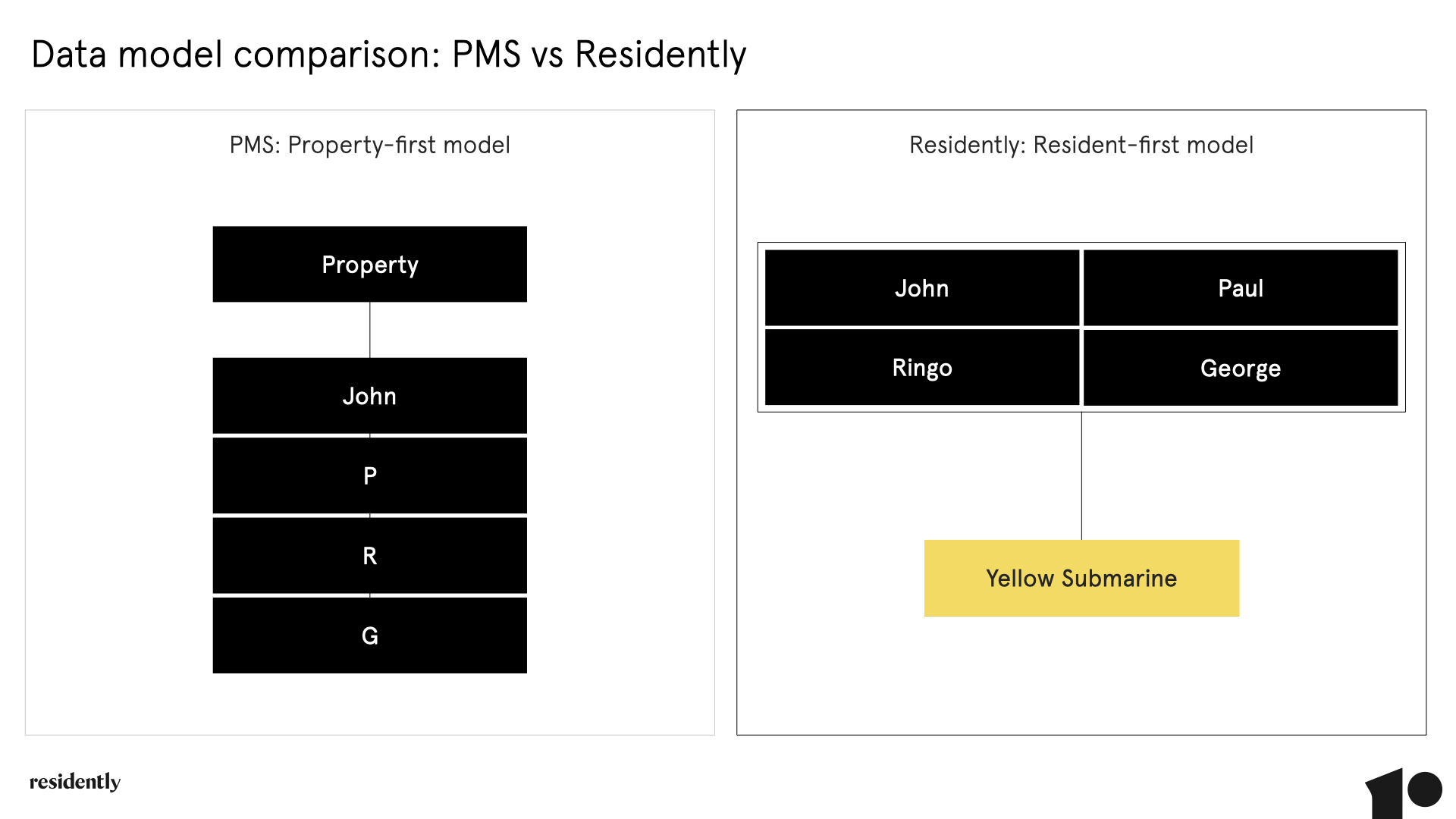
The property industry has no shortage of AI hype. From predictive maintenance to automated leasing assistants, vendors are promising a future where algorithms run operations and margins rise. But there's a hard truth most operators discover the moment they try to implement AI: your AI is only as good as your data.
.png)
And here's the bigger problem: if you're running on a traditional property management system (PMS), your data isn't built for AI. That's why the real future of AI in property won't come from PMS providers retrofitting their tools. It will come from rental operating systems like Residently.
Let's break down why.
A PMS is designed for accountancy. It's built around the property as the "master record." In practice, that means all resident data inside that property record is often incomplete or riddled with inconsistencies.
You have probably seen:
A PMS might say you have "one property with four residents," but in its database, those residents exist only as loose attachments to the property file.
Residently flips this model. Our master record is the resident, complete with all personally identifiable data (PID) captured during onboarding, then tied to the property. The result? Four fully profiled residents tied to one property, a structure that unlocks a complete, accurate, and actionable dataset.

What we've effectively done is embed Master Data Management (MDM) principles directly into the rental operating system. In MDM terms, we create the "golden record" for each resident — cleansed, enriched, and synchronised across all workflows.
That means:
This isn't just tidy record-keeping. It's the foundation AI needs to work.
AI isn't magic. It's math. And if the numbers it's crunching are incomplete, inaccurate, or out of date, the outputs are useless — or worse, damaging.
Nearly half of enterprise AI projects fail because they're built on disconnected or poor-quality data. In property, this is exactly what happens when operators try to "do AI" on top of a PMS:
Residently solves this by being the single front end for everything renting. Marketing, leasing, and community all flow through one connected platform. That creates the unified, real-time dataset AI can actually learn from and act upon.
For those in technical roles:
From a data architecture standpoint, PMS platforms suffer from entity hierarchy misalignment when applied to AI. The "property-first" model results in nested, incomplete resident records that are unsuitable for granular analytics or automation.
In contrast, Residently's resident-first master data model adheres to best-practice MDM principles:
The result is AI-ready, context-rich data that supports advanced use cases like:
In short, you cannot retrofit this architecture onto a PMS without rebuilding it from scratch. Residently already provides it, integrated into your operations from day one.
The best part? You don't need to throw out your existing systems to get AI-ready. Residently is PMS, CRM, and data agnostic, meaning we plug straight into your current stack without disrupting daily operations.
We've also built specialist data preparation tools to help you get from "PMS data chaos" to "AI-ready clarity" before the first resident record even hits our system. Using algorithms like Levenshtein distance, we can identify incomplete or inconsistent resident data — think missing names, half-filled contact fields, or duplicated entries — and predict the most likely correct values using email addresses, contracts, and any other data sources we might find.
This means your teams know exactly where to focus their clean-up efforts, turning fragmented resident records into complete, high-quality profiles. By the time they enter Residently's rental operating system, you have a connected, accurate dataset that AI can immediately act upon.
If your master record is a property, your AI will always be limited. If your master record is the resident, you unlock the clean, connected data that AI needs to deliver real results.
The future of AI in property belongs to platforms built on the right data model. That means resident-first, not property-first. That means Residently.